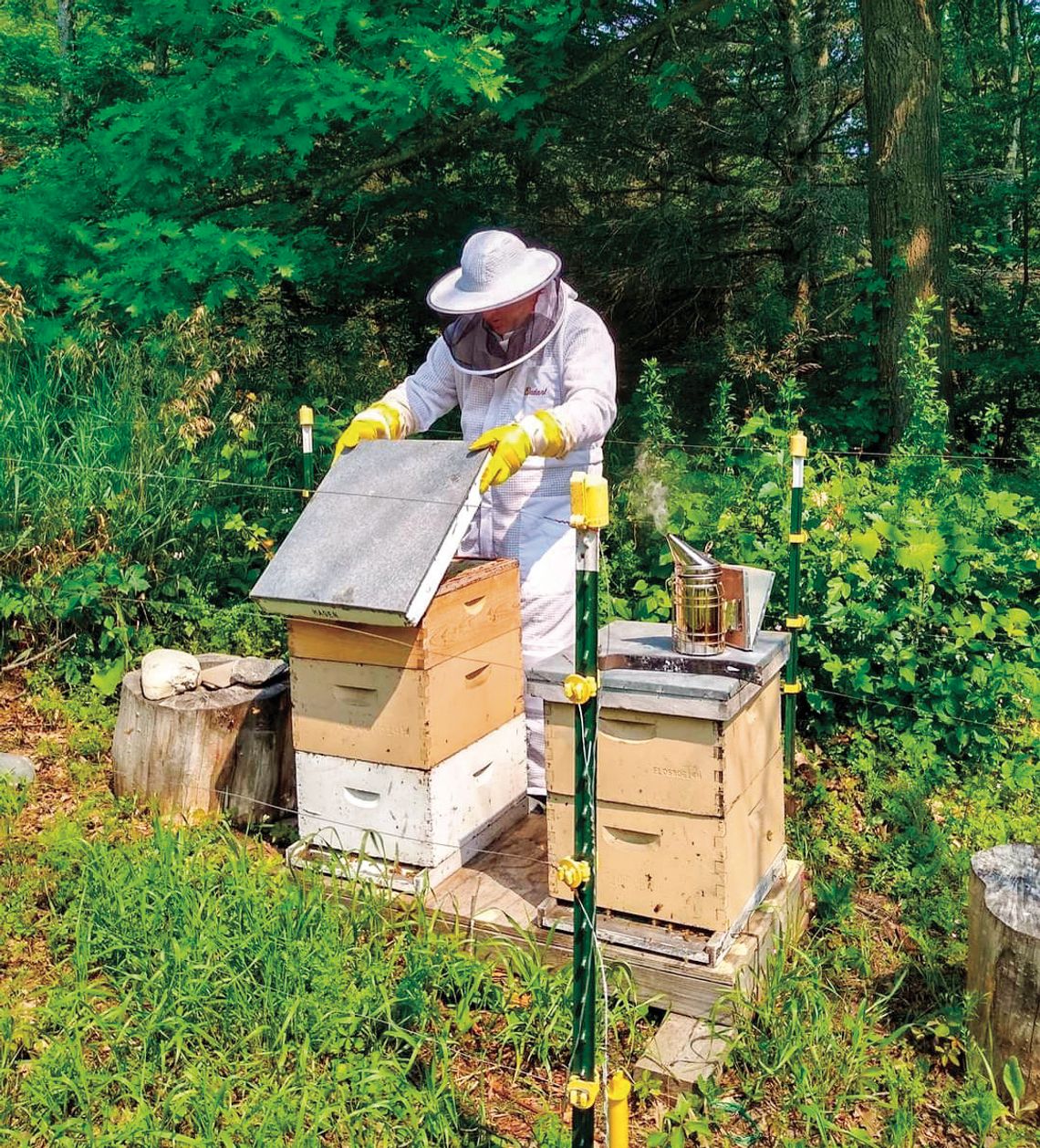The Leelanau peninsula is known for its beauty, from the waters that surround it and the orchards that produce fruit, to the farms that grow vegetables and flowers that so many people enjoy. Harvests for these homegrown crops are made possible by so many variables, including pollinators like bees.
Scot Wack is a beekeeper in Northport, and has been harvesting local honey for the past five years. During a good season, Wack said he can harvest around 60-80 pounds of honey per hive, noting that the process is a meticulous one that has to be monitored. As the weather cools and the queen bee stops laying eggs, Wack plans to harvest honey in late September after the last bloom.
Besides liking honey, Wack said he began beekeeping because he understands the importance of bees and why they’re necessary for things to grow and thrive.



